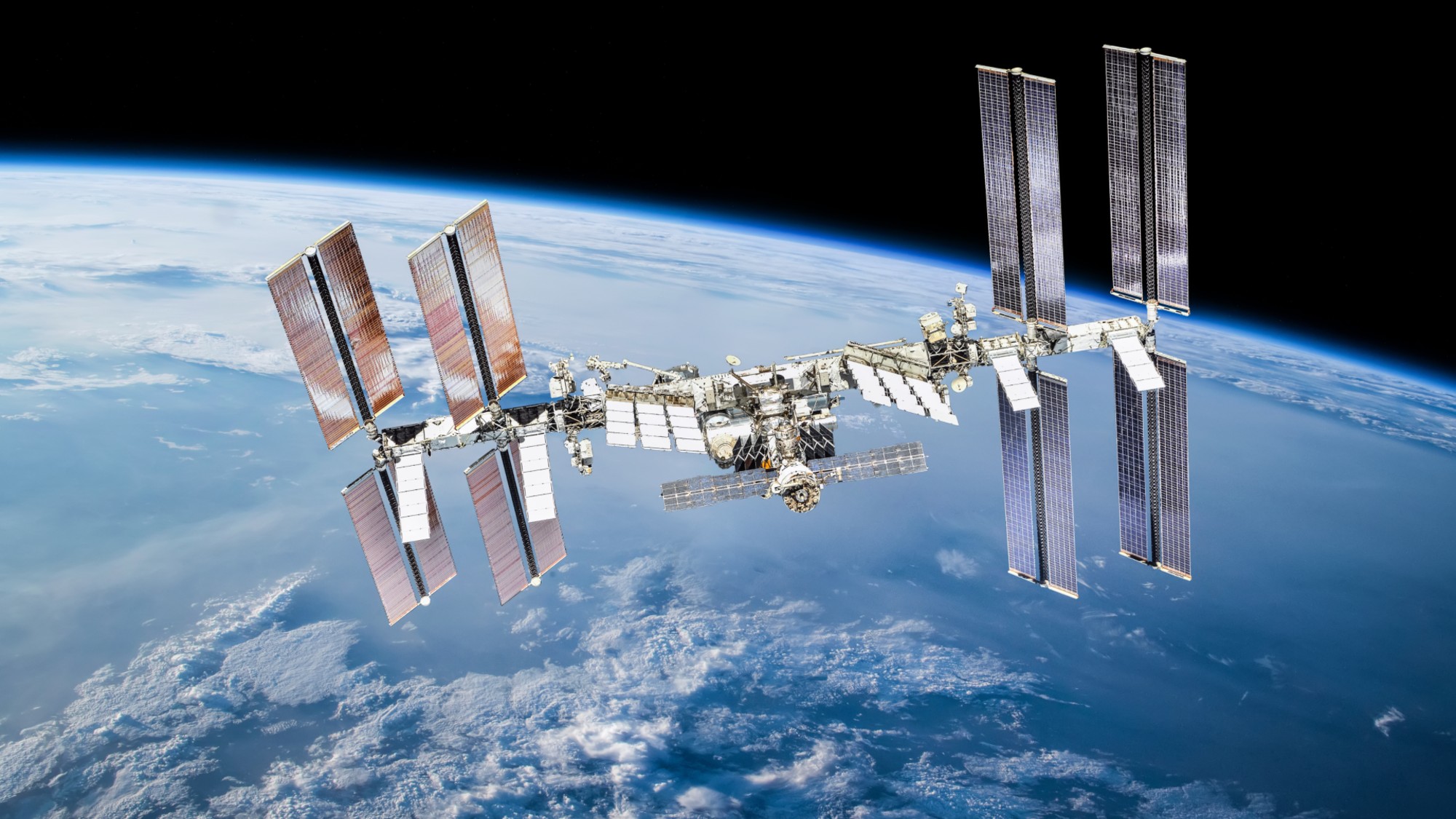What is the future of the International Space Station?
A fiery retirement, launching the era of private space stations


A free daily email with the biggest news stories of the day – and the best features from TheWeek.com
You are now subscribed
Your newsletter sign-up was successful
Americans, Russians and spacefarers from other countries have been working together aboard the International Space Station for a quarter-century. But the ISS is nearing the end of its operational life. What's next for the space station, and what comes after it retires?
Following the ISS retirement in 2030, NASA expects to see the construction of "one or more commercial space stations," said The Verge. Each station will be run by a private company "for profit and part of a thriving space economy." NASA astronauts will use these stations as a platform for their work and further exploration of space. Two companies, Blue Origin and Starlab Space, are creating their own designs, while another, Axiom Space, is building modules to "begin life" attached to the ISS. The goal is ambitious, but also a gamble. Industry leaders still don't know "whether there's money to be made or not" in space, said The Verge.
Why is the ISS being retired?
The station is "showing its age," said Florida Today. A recent report from NASA's inspector general questioned whether it would be "safe or even affordable to operate past 2030," or even if it can last that long. There is an air leak in a Russian module on the station, and space suits aboard the station have been malfunctioning. So NASA is making plans to "deorbit" the station, contracting with SpaceX to build a vehicle that will bring the station "over a remote part of Earth" in 2031.
The Week
Escape your echo chamber. Get the facts behind the news, plus analysis from multiple perspectives.

Sign up for The Week's Free Newsletters
From our morning news briefing to a weekly Good News Newsletter, get the best of The Week delivered directly to your inbox.
From our morning news briefing to a weekly Good News Newsletter, get the best of The Week delivered directly to your inbox.
There is debate about whether that's a wise plan. Critics say crashing the ISS into an isolated part of the Pacific Ocean "could end up polluting Earth's air and water," said Space.com. Others say the effects will be negligible: Dumping the 400-ton ISS will be a "very minor contributor to ocean pollution" compared to the shipping and cargo that already sinks every year, said Luciano Anselmo of the Space Flight Dynamics Laboratory. But others argue for boosting the ISS to a higher orbit, Kevin Holden Platt said at Forbes. Up there, it could serve as a museum for "astrophysicists, astronauts and space aficionados not yet born."
What happens after the ISS retires?
Space stations have for more than 50 years "been the preserve of nation-states," said The Telegraph. That's largely been a question of capabilities: National governments alone possessed the "billions of dollars of investment" and capability to make "dozens of rocket launches" that building a station requires. No longer. Elon Musk's SpaceX has helped bring down launch costs, and now private companies are raising "billions of dollars in an effort to build future hubs" in space. Some of the entrepreneurs have literally lofty goals. One day "there will be more people living off Earth than on Earth," predicted Max Haot, CEO of Vast, which hopes to launch a small station this year.
NASA, meanwhile, is looking beyond Earth orbit to the "moon and beyond," said Mashable. America's space agency is aiming to build a "permanent lunar presence" that could serve as a launch point for humanity's first trip to Mars.
A free daily email with the biggest news stories of the day – and the best features from TheWeek.com
Joel Mathis is a writer with 30 years of newspaper and online journalism experience. His work also regularly appears in National Geographic and The Kansas City Star. His awards include best online commentary at the Online News Association and (twice) at the City and Regional Magazine Association.
-
 How the FCC’s ‘equal time’ rule works
How the FCC’s ‘equal time’ rule worksIn the Spotlight The law is at the heart of the Colbert-CBS conflict
-
 What is the endgame in the DHS shutdown?
What is the endgame in the DHS shutdown?Today’s Big Question Democrats want to rein in ICE’s immigration crackdown
-
 ‘Poor time management isn’t just an inconvenience’
‘Poor time management isn’t just an inconvenience’Instant Opinion Opinion, comment and editorials of the day
-
 NASA’s lunar rocket is surrounded by safety concerns
NASA’s lunar rocket is surrounded by safety concernsThe Explainer The agency hopes to launch a new mission to the moon in the coming months
-
 Nasa’s new dark matter map
Nasa’s new dark matter mapUnder the Radar High-resolution images may help scientists understand the ‘gravitational scaffolding into which everything else falls and is built into galaxies’
-
 Moon dust has earthly elements thanks to a magnetic bridge
Moon dust has earthly elements thanks to a magnetic bridgeUnder the radar The substances could help supply a lunar base
-
 How Mars influences Earth’s climate
How Mars influences Earth’s climateThe explainer A pull in the right direction
-
 The ‘eclipse of the century’ is coming in 2027
The ‘eclipse of the century’ is coming in 2027Under the radar It will last for over 6 minutes
-
 NASA discovered ‘resilient’ microbes in its cleanrooms
NASA discovered ‘resilient’ microbes in its cleanroomsUnder the radar The bacteria could contaminate space
-
 Artemis II: back to the Moon
Artemis II: back to the MoonThe Explainer Four astronauts will soon be blasting off into deep space – the first to do so in half a century
-
 The mysterious origin of a lemon-shaped exoplanet
The mysterious origin of a lemon-shaped exoplanetUnder the radar It may be made from a former star
